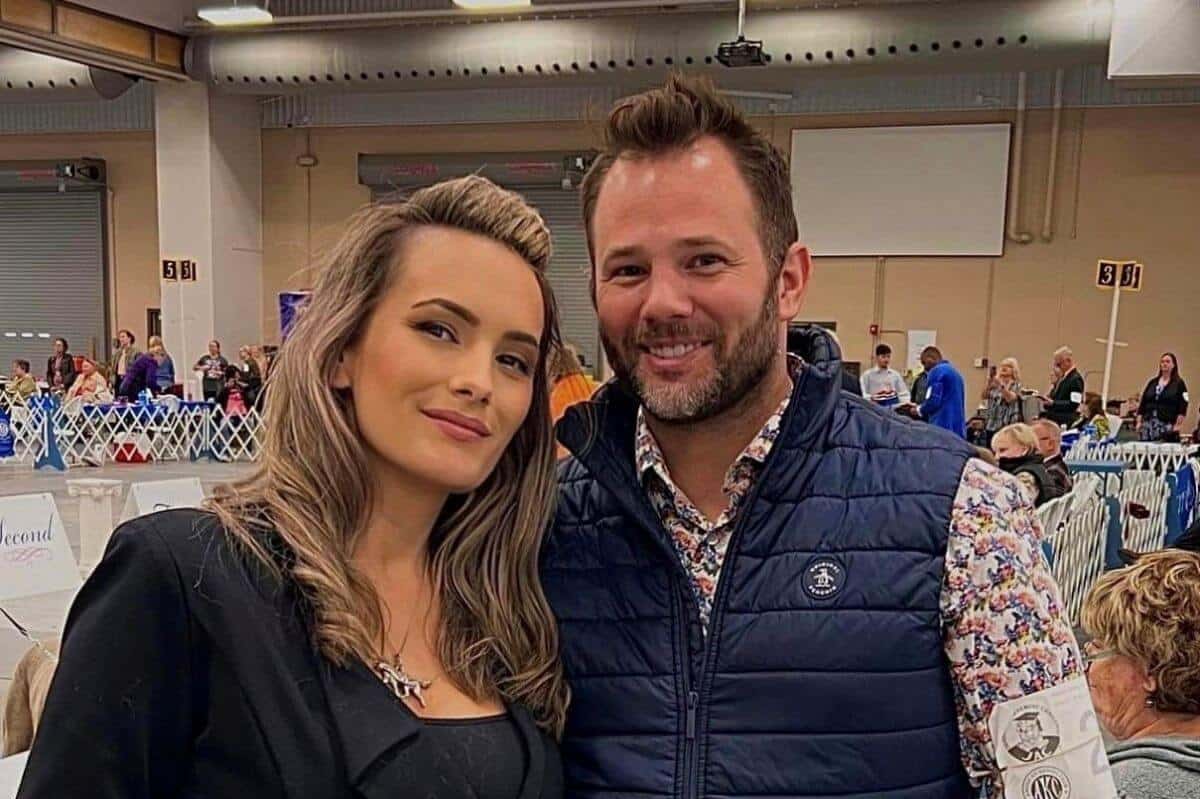
Home » Thoughts From the Professional Handler – Trina Matteson

Trina Matteson: My husband and I have both been showing dogs since we were small children, as we were born into the sport and have been participating ever since. It’s actually how we met, when we were both at a Sheltie National in Arizona. We started handling as a team in California and have since moved to Silver Springs in beautiful North Central Florida on five acres where we breed DarkHorse Belgian Malinois and run our handling and training company.
When I was growing up, Corky and Sue Vroom were my Grandmother’s handlers. Having the ability to grow up in their set-up, watching and learning the ins and outs of dog shows from behind the scenes, truly gave me a wide-eye view of how to run a set-up and business. Sue was one of the people I could always turn to while growing up. I truly believe she gave me the tools and foundation that is needed to survive in the industry.
Trina Matteson: The sport of dog shows is ever-growing, but it seems there is a negativity that will often keep new people at bay; the “gatekeepers,” as it would be. This is the time that all people need to be welcomed into the sport. Without new people learning from the experienced, how will our sport grow? How will we continue to preserve our breeds? The answer is, we won’t. It’s not about offering special competitions or classes. It is about welcoming new people, helping them, mentoring them in the breeds and in the general knowledge of dog shows. When someone shows up and has a “companion” quality dog, we don’t tell them how horrible their dog is. Rather, tell them the attributes their dog has as well as where the dog needs improvement. It is seeming more and more often that dog shows can seem more like high school than a place for the evaluation of breeding stock. Social media has, in my opinion, definitely had a large part to do with it. “Keyboard warriors” typing away and bullying people is something that needs to stop. I think it was a great course of action for AKC to step up to media bullying. Social media has been a blessing if you are campaigning a dog, but at the same time it only takes a few swipes at a keyboard and trouble is brewing.
Trina Matteson: As a breeder of a low entry breed (Belgian Malinois), I appreciate the change of non-Champions receiving points for Group placements. With the number of shows we now have, it can be difficult to build majors as people have many dates to choose from. So, having the ability to earn points for Group placements has been wonderful. As for Reserve Best in Show, I am a believer that whoever receives Reserve Best should also earn points, but the points should only be for the Groups that were defeated; not to include the Group that the dog which was awarded Best in Show was from. I believe it is a great program for the Reserve Winners at National Specialties to receive points. It is a prestigious win and something that is well deserved and should be recognized as such.
Trina Matteson: When I think of our sport and what it is lacking as a whole, it is compassion. There is a great amount of compassion for our dogs, but the human-to-human compassion is lacking. The majority have lost sight of the true purpose of dog shows, forgetting that this is an evaluation of breeding stock and not a popularity contest. I do see social media having a large influence on the community, where a rumor that would once take weeks to circulate by phone calls or from person to person now takes moments to spread worldwide. This is an issue that will take the community as a whole to fix, and sadly, I don’t see that happening. While social media has had its downsides to the sport, it has also helped in so many ways. We are able to better communicate. When a dog is lost, the number of people who are aware is tenfold more than if we didn’t have social media. We are also able to hold fundraisers when members of our dog show community are hurting financially. Even though we have issues, the dog show community is truly a family that pulls together when it’s needed.
Trina Matteson: My message to the fancy would be to stay true to yourself and your breed, never stop learning, and keep the fire burning for the passion of dogs. We are all here for the same thing—to breed better dogs and to improve our dogs, generation by generation.